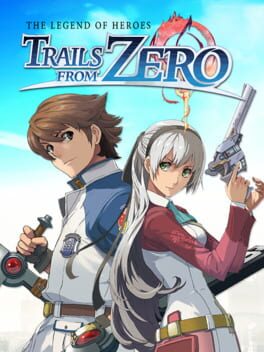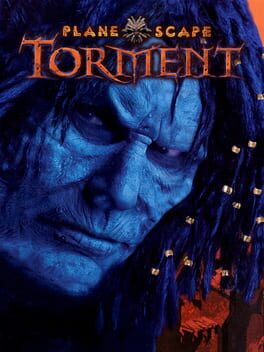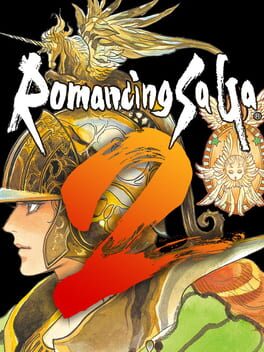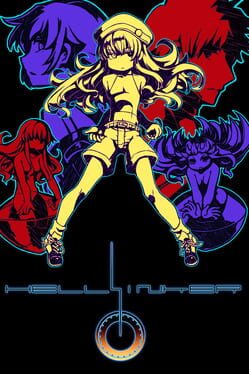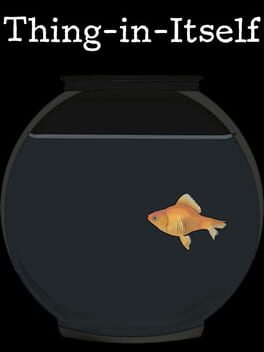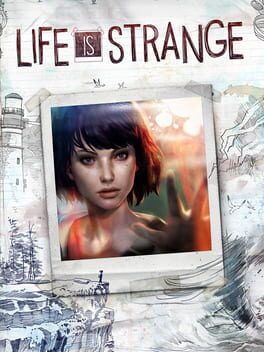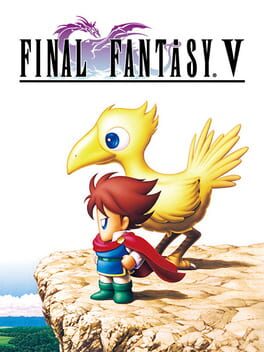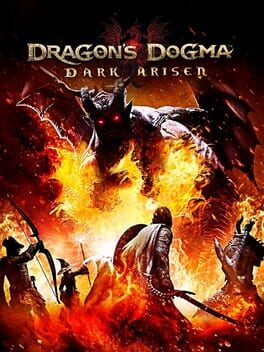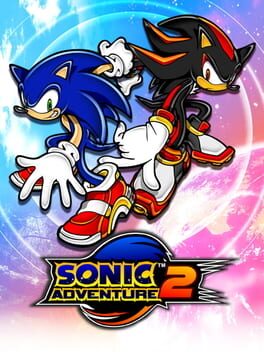owodeluxe
96 Reviews liked by owodeluxe
If there’s anything in this world worth keeping alive, it’s love.
In the void that is Revachol, we see the light of love and hope slowly fade away. It is up to us to cultivate and nurture that light so it does not die. Love is not dead! As you read this, you are alive and breathing, and it's up to you to seize what remains and fight for it. We can no longer wait for some great revolution that will fix all of our problems. If you truly desire a revolution, you must create the conditions necessary to birth it!
Disco Elysium isn’t just a game about what political faction you align with or finding out who lynched the man behind Whirling-in-Rags; it’s a story about love and why we must hold onto it, even in the darkest of times. I understand that nowadays, with the current state of affairs, it's hard to believe in love and hope. It's difficult to place our hope in a future that seems to have been stolen away from us, yet that's precisely when we need it the most.
I choose to believe in love. I choose to hold on to the hope that a better future is possible, no matter what, because I believe it is. The people we know, the community we live in, and the world we inhabit are worth fighting for. Disco Elysium taught me that fixing the world and making it a better place isn’t just about picking up a gun and waging some violent revolution; it’s about cultivating community and caring for those in it. That’s where the true beauty of Disco Elysium lies.
I believe the way this game conveys that message is quite powerful. Disco doesn't make some grand showy gesture beating you over the head with its message; instead, it laboriously takes the time to show you that the world you live in is beautiful and worth fighting for. It spends the time showing you the inner lives of those around you and has you helping them, one person at a time.
There is one specific character that I feel best embodies this: Cuno. Cuno, at first, is seen to be an irrational, difficult, vulgar, and poorly-behaved child, which leads you to inevitably hate him. As you learn more about Cuno and his home life, however, you realise there’s something greater at play. He doesn’t act out for the hell of it; he is the way he is because his father is a drunk who’s fallen down on his luck due to becoming a victim of the system giving up on him and his son. He’s left with no choice. The system has abandoned Uuno and his son, leaving them both to fend for themselves and pick up the pieces. Which sadly isn’t uncommon in Revachol and the real world as well. It’s perhaps one of the most striking and poignant stories in the game. I eventually went from despising Cuno to feeling empathy for him, as I did for many others in Revachol when I learned their stories.
I believe this approach to storytelling and character writing is incredibly effective, and the best part about Disco Elysium is that these kinds of stories are all over the game. This goes to show how much love and care was put into humanising the inhabitants of Revachol, which helps make the world feel alive. Because of how well the game fleshed out its world and characters Disco Elysium was successful at conveying the message that this world is worth fighting for. Not only was I captivated by this world, but as the game drew to a close, I found myself deeply invested in the wellbeing of these characters and the city.
As I learned about these stories, Revachol’s history, and the many political factions vying for power, I realised that this game was never about solving a murder or finding which faction is "correct." It was about learning to love those around us and working together to create a better world, one step at a time. Creating a better world was never an unattainable goal conjured up in the minds of idealistic and "ignorant" kids. It is a possible reality, but it demands the working toiling masses of the world unite and work hand in hand in creating this future. It is on us to seize the future and lift eachother up when we need it most.
Never give up on fighting for this future. It is only dead when you allow yourself to be convinced that it is.
In the void that is Revachol, we see the light of love and hope slowly fade away. It is up to us to cultivate and nurture that light so it does not die. Love is not dead! As you read this, you are alive and breathing, and it's up to you to seize what remains and fight for it. We can no longer wait for some great revolution that will fix all of our problems. If you truly desire a revolution, you must create the conditions necessary to birth it!
Disco Elysium isn’t just a game about what political faction you align with or finding out who lynched the man behind Whirling-in-Rags; it’s a story about love and why we must hold onto it, even in the darkest of times. I understand that nowadays, with the current state of affairs, it's hard to believe in love and hope. It's difficult to place our hope in a future that seems to have been stolen away from us, yet that's precisely when we need it the most.
I choose to believe in love. I choose to hold on to the hope that a better future is possible, no matter what, because I believe it is. The people we know, the community we live in, and the world we inhabit are worth fighting for. Disco Elysium taught me that fixing the world and making it a better place isn’t just about picking up a gun and waging some violent revolution; it’s about cultivating community and caring for those in it. That’s where the true beauty of Disco Elysium lies.
I believe the way this game conveys that message is quite powerful. Disco doesn't make some grand showy gesture beating you over the head with its message; instead, it laboriously takes the time to show you that the world you live in is beautiful and worth fighting for. It spends the time showing you the inner lives of those around you and has you helping them, one person at a time.
There is one specific character that I feel best embodies this: Cuno. Cuno, at first, is seen to be an irrational, difficult, vulgar, and poorly-behaved child, which leads you to inevitably hate him. As you learn more about Cuno and his home life, however, you realise there’s something greater at play. He doesn’t act out for the hell of it; he is the way he is because his father is a drunk who’s fallen down on his luck due to becoming a victim of the system giving up on him and his son. He’s left with no choice. The system has abandoned Uuno and his son, leaving them both to fend for themselves and pick up the pieces. Which sadly isn’t uncommon in Revachol and the real world as well. It’s perhaps one of the most striking and poignant stories in the game. I eventually went from despising Cuno to feeling empathy for him, as I did for many others in Revachol when I learned their stories.
I believe this approach to storytelling and character writing is incredibly effective, and the best part about Disco Elysium is that these kinds of stories are all over the game. This goes to show how much love and care was put into humanising the inhabitants of Revachol, which helps make the world feel alive. Because of how well the game fleshed out its world and characters Disco Elysium was successful at conveying the message that this world is worth fighting for. Not only was I captivated by this world, but as the game drew to a close, I found myself deeply invested in the wellbeing of these characters and the city.
As I learned about these stories, Revachol’s history, and the many political factions vying for power, I realised that this game was never about solving a murder or finding which faction is "correct." It was about learning to love those around us and working together to create a better world, one step at a time. Creating a better world was never an unattainable goal conjured up in the minds of idealistic and "ignorant" kids. It is a possible reality, but it demands the working toiling masses of the world unite and work hand in hand in creating this future. It is on us to seize the future and lift eachother up when we need it most.
Never give up on fighting for this future. It is only dead when you allow yourself to be convinced that it is.
Final Fantasy VII
1997
When it comes to Final Fantasy VII, I think there tends to be a general fixation on Midgar as a centralized point of identity for the game. And while I do think it's one of the best opening segments in maybe any videogame, what makes it work so well in the grand scheme of things is just how introspective the rest of the game feels when juxtaposed to its explosive sense of grandiosity.
Final Fantasy VII's globe trotting adventure isn't primarily defined by it's sense for theatrics, but by it's mellow tone and somber sensibilities. The towns you come across are oftentimes humble and restrained, carefully crafted with precision point environmental design and delicate cinematography. There's a tender sense of balance to found throughout the whole affair, as it seeks to comfort you just as often as it alienates you. That push-and-pull dynamic it shares with the player is such a key focal point as to what make the worlds of VII and VIII feel so utterly compelling to me, and I can't help but feel that the unquestioned contrast between the science and fantasy elements plays a major factor in how sheerly effective that relationship it is.
Aerith's fate is something I'll never forget, not just because of the effective dramatization found within that one moment, but because of how silent and truly felt her absence is across the rest of the game. A lot of people give this game grief for putting the snowboarding segment not even like twenty minutes later, but the fact that the game just moves on afterwards without dwelling on itself too hard is exactly what I think makes it brilliant. Final Fantasy VII allows its punctual moments to breathe and sink skin deep, and it knows that no amount of self indulgent dialogue commemorating Aerith would ever hit as hard as opening the party screen just to see a missing slot there.
Cloud might not be the person he says he is, but what he becomes through learning to open his heart to other people and show compassion makes him more of a hero than any mere SOLDIER could ever hope to be. He never has any major transformation in regards to physicality and utility, he doesn't have to. Just as he doesn't need to be told by someone that he's finally enough, he always was.
For every magnificent setpiece Final Fantasy VII has, there's a slew of soft spoken moments of beauty that truly make this game what it is, even up to its final moments. It ends the same way it began, a friendly face amidst a writhing future of uncertainty. That faint shimmer of hope shining just as bright as it always has.
Final Fantasy VII's globe trotting adventure isn't primarily defined by it's sense for theatrics, but by it's mellow tone and somber sensibilities. The towns you come across are oftentimes humble and restrained, carefully crafted with precision point environmental design and delicate cinematography. There's a tender sense of balance to found throughout the whole affair, as it seeks to comfort you just as often as it alienates you. That push-and-pull dynamic it shares with the player is such a key focal point as to what make the worlds of VII and VIII feel so utterly compelling to me, and I can't help but feel that the unquestioned contrast between the science and fantasy elements plays a major factor in how sheerly effective that relationship it is.
Aerith's fate is something I'll never forget, not just because of the effective dramatization found within that one moment, but because of how silent and truly felt her absence is across the rest of the game. A lot of people give this game grief for putting the snowboarding segment not even like twenty minutes later, but the fact that the game just moves on afterwards without dwelling on itself too hard is exactly what I think makes it brilliant. Final Fantasy VII allows its punctual moments to breathe and sink skin deep, and it knows that no amount of self indulgent dialogue commemorating Aerith would ever hit as hard as opening the party screen just to see a missing slot there.
Cloud might not be the person he says he is, but what he becomes through learning to open his heart to other people and show compassion makes him more of a hero than any mere SOLDIER could ever hope to be. He never has any major transformation in regards to physicality and utility, he doesn't have to. Just as he doesn't need to be told by someone that he's finally enough, he always was.
For every magnificent setpiece Final Fantasy VII has, there's a slew of soft spoken moments of beauty that truly make this game what it is, even up to its final moments. It ends the same way it began, a friendly face amidst a writhing future of uncertainty. That faint shimmer of hope shining just as bright as it always has.
As one story ends another begins. This is what brings us to Crossbell. A city state sandwiched between two political superpowers seemingly hanging on by a thread to stay afloat of outside influences. However not everything is what it seems on the surface. Crossbell is corrupt and is very limited on what it can do to fix its own issues. And only the SSS can change Crossbell's wrongdoings from within.
I love the SSS man. Every member is so fun to see and their interactions are priceless. The squad is so diverse in personality and yet they mesh so well. Even their battle styles are different. Seeing the SSS slowly get the recognition they deserve is such a payoff. They aren't just a copy of the bracer guild and made their own identity.
I find the setting of Crossbell to be very engaging especially since the state is small enough to where you are able to get to know every character including the npcs and really connect with the characters when shit hits the fan. It also isn't small to the point where you get tired of the same locations. This can also be implied due to how well this game uses its map. Like it just makes sense that you have to go all over Crossbell to retrieve an overdue book or partake in a fishing contest at the sandbar.
As always Trails and of course Falcom delivers on its soundtrack. Like every time this track played I was on the edge of my seat because I knew I had to lock in. Another great soundtrack that the music is all it takes to change your mood in an instant.
Can't talk about Zero without a certain character's journey that has spanned over 3 games now. Definetly one of the best character journeys I have seen in a video game. Every time they are on screen I always get emotional. There is just something about how its handled that it's truly special.
From what this game concludes off of, I really wonder how Azure will start off because Zero had a pretty conclusive ending but definetly has questions that needs to be answered. Just like us as the player, the SSS still doesn't know all of the answers on the why of how Crossbell functions but if we just get over the barrier only then we can seek the truth and justice be served.
"But what we need right now is the experience of overcoming these kinds of obstacles. Think about it, clear the small barriers one by one… If we do that, then someday, we’ll have the power to get over the taller barriers, too. "
I love the SSS man. Every member is so fun to see and their interactions are priceless. The squad is so diverse in personality and yet they mesh so well. Even their battle styles are different. Seeing the SSS slowly get the recognition they deserve is such a payoff. They aren't just a copy of the bracer guild and made their own identity.
I find the setting of Crossbell to be very engaging especially since the state is small enough to where you are able to get to know every character including the npcs and really connect with the characters when shit hits the fan. It also isn't small to the point where you get tired of the same locations. This can also be implied due to how well this game uses its map. Like it just makes sense that you have to go all over Crossbell to retrieve an overdue book or partake in a fishing contest at the sandbar.
As always Trails and of course Falcom delivers on its soundtrack. Like every time this track played I was on the edge of my seat because I knew I had to lock in. Another great soundtrack that the music is all it takes to change your mood in an instant.
Can't talk about Zero without a certain character's journey that has spanned over 3 games now. Definetly one of the best character journeys I have seen in a video game. Every time they are on screen I always get emotional. There is just something about how its handled that it's truly special.
From what this game concludes off of, I really wonder how Azure will start off because Zero had a pretty conclusive ending but definetly has questions that needs to be answered. Just like us as the player, the SSS still doesn't know all of the answers on the why of how Crossbell functions but if we just get over the barrier only then we can seek the truth and justice be served.
"But what we need right now is the experience of overcoming these kinds of obstacles. Think about it, clear the small barriers one by one… If we do that, then someday, we’ll have the power to get over the taller barriers, too. "
Planescape: Torment
1999
My journey across The Planes has taken me to places that most men believe exist only in the realm of thought. These places I travelled to, the people I met, and the conversations I had fundamentally changed me as a person. I don’t fully know how, but regardless, I know some sort of change occurred. Perhaps writing about my experience with Planescape will help me better understand these changes and the person I am today.
When I was 14, I discovered Planescape: Torment, and while I thought the game was awesome, I could never really engage with the questions the game posed to me. I mean, how could I? What would the question “What can change the nature of a man?” mean to a 14-year-old who was only beginning to grapple with the concept of its own being? Looking back, it meant nothing to me. Now that I am an adult, however, the question means much more to me. Part of me is ashamed to admit I haven’t always been a ‘good’ person. Learning to be kind, understanding, mature, and responsible took me many years of struggling and hardship to achieve. Even today, I still struggle with this, but through that struggle, I came to learn more about myself and my nature. I can’t fully codify into words what my “nature” or “self” are because they are concepts that exist beyond language. Language can at times be limiting, so I look to art to help me look inward and better conceptualise these thoughts and feelings. I feel as though Planescape stirred the part of my soul that sought these answers, and despite it not giving me concrete answers, I feel satisfied with the new questions it posed to me. To me, good art never seeks to speak for the reader but instead provides them with the tools necessary to create subjective meaning from the experience they have with it. I believe Planescape does this quite well; I’d even go so far as to argue that it fully agrees with me here. When The Nameless One is posed the question, “What can change the nature of a man?” the game does not have him provide a concrete answer to the player. Instead, we are left with the game giving us the tools necessary to begin constructing our own answer to that question as the credits roll. Currently, I don't have an answer to that question, and I'm not sure if I will even have one a decade from now, but I'm okay with that. Part of growing up meant that I had to learn to be content with not always having an answer for everything; perhaps not every question needed an answer.
There’s more I could write, but perhaps it’s best that some things remain unwritten. I would love to endlessly navel-gaze, but that wouldn’t do me or you, the reader, any good. I apologise to anyone here who expected a formal review and was met instead by my self-indulgent introspection. There's really not much I can say about Planescape that hasn't already been said; it's an awesome ass game, and it deserves the reputation it has made for itself, enough said.
Anyways, I’d like to end this short write-up by saying that if you haven’t already played Planescape: Torment, you owe it to yourself to take that journey across The Planes. Sigil is known as the ‘City of Doors’, after all, so why don’t you look inside and see where one of them takes you?
When I was 14, I discovered Planescape: Torment, and while I thought the game was awesome, I could never really engage with the questions the game posed to me. I mean, how could I? What would the question “What can change the nature of a man?” mean to a 14-year-old who was only beginning to grapple with the concept of its own being? Looking back, it meant nothing to me. Now that I am an adult, however, the question means much more to me. Part of me is ashamed to admit I haven’t always been a ‘good’ person. Learning to be kind, understanding, mature, and responsible took me many years of struggling and hardship to achieve. Even today, I still struggle with this, but through that struggle, I came to learn more about myself and my nature. I can’t fully codify into words what my “nature” or “self” are because they are concepts that exist beyond language. Language can at times be limiting, so I look to art to help me look inward and better conceptualise these thoughts and feelings. I feel as though Planescape stirred the part of my soul that sought these answers, and despite it not giving me concrete answers, I feel satisfied with the new questions it posed to me. To me, good art never seeks to speak for the reader but instead provides them with the tools necessary to create subjective meaning from the experience they have with it. I believe Planescape does this quite well; I’d even go so far as to argue that it fully agrees with me here. When The Nameless One is posed the question, “What can change the nature of a man?” the game does not have him provide a concrete answer to the player. Instead, we are left with the game giving us the tools necessary to begin constructing our own answer to that question as the credits roll. Currently, I don't have an answer to that question, and I'm not sure if I will even have one a decade from now, but I'm okay with that. Part of growing up meant that I had to learn to be content with not always having an answer for everything; perhaps not every question needed an answer.
There’s more I could write, but perhaps it’s best that some things remain unwritten. I would love to endlessly navel-gaze, but that wouldn’t do me or you, the reader, any good. I apologise to anyone here who expected a formal review and was met instead by my self-indulgent introspection. There's really not much I can say about Planescape that hasn't already been said; it's an awesome ass game, and it deserves the reputation it has made for itself, enough said.
Anyways, I’d like to end this short write-up by saying that if you haven’t already played Planescape: Torment, you owe it to yourself to take that journey across The Planes. Sigil is known as the ‘City of Doors’, after all, so why don’t you look inside and see where one of them takes you?
Romancing SaGa 2
1993
maybe not the strongest game ever writing or story wise but conceptually and in execution for a jrpg from 1993 romancing saga 2 is incredibly interesting and a game i'll probably be thinking about for a long time. the only version available in english being an inferior remaster definitely doesn't do it any favors for a wider audience, but it's still something worth checking out if you care at all about the genre. my only hope from something like team asano or just the influx of more classic-inspired jrpgs in general is that we go back to an era where we get experimental titles like this again
Final Fantasy X
2001
HellSinker
2007
100% achievements.
November 6th, 2023, marks the day I would begin my journey of playing Hellsinker. 5 months and a day to be exact. With interest spawning from a stray suggestion by a friend of mine, this would quickly result in an obsessive play-through which then graduated to an obsessive achievement hunt which would THEN go on infiltrate my personal life via absolutely wreaking havoc on my sleep schedule, even hijacking my dreams.
And I couldn't be more thankful.
Quite honestly, I'm not sure where to take this review, I'll let my fingers glide along the keyboard and post whatever crops up.
At 89.1 hours, Hellsinker sits comfortably at my #5 most played game on Steam. Despite this, I've only gone on to engage with the game in its entirety through the lens of 1 character. The game features 4 characters, 1 of which has 4 "Ordinance Packages" which change up their loadout. Essentially, this 1 character is 4 though their endings remain the same between loadouts. This leaves me with a staggering 1/7 true completion. In addition to this, each character does have a unique ending depending on their TLB progression, not viewable within the game's text sequence viewer. Though I've already gone ahead and watched a video showing their contents (SPOILERS (DUH!)), I'd still love to play the game to experience them firsthand.
Alright, what more is there left for me do? Surely after that I would have completed EVERYTHING there is to this game... right?
WRONG! THERE'S SO MUCH! THERE'S QUITE FRANKLY TOO MUCH! AND I THINK THE FUNNIEST PART HAS TO BE HOW ABSOLUTELY UNINTENDED MOST OF THE EXTRA STUFF IS!
I'll start by introducing this game's older sibling, Radio Zonde. Yes, I have played the game before, but I haven't really completed in a manner I find acceptable, so there's still this entire game for me to play. Much of the ideas regarding design both graphics and gameplay are very much seen within Hellsinker. 1CC for Radio Zonde TBD.
Following this game would then come Hellsinker but in the form of a demo, kinda? Colloquially the build is known as Hellsinker 0.95. This build is quite.... special. There's a bajillion changes from this version of the game to the Doujin and Steam releases and although I'd like to talk about them all day I'll spare this "review" the word count and cut to the main thing. This game, although presenting itself as a demo, actually holds within itself the entire game but more importantly the final stage(SPOILERS(AGAIN(DUH!))) accessible through dropping in some files graciously provided by the original poster. In a non-patched version, only stages 1-4 are playable. The cut special stages also feature 2 versions from what I understand looking at the channel. One version would then go on to become the Shrine seen in the Doujin and Steam release. The other version cut from the final releases feature something adjacent to a dungeon crawler style level (not spoilers).
Okay so. That's it right? Nothing more? There couldn't possibly be more?
But there is! All of these are from the game's Doujin release era (so like 2007-2011?) I'll tally up everything here:
>Doujin release (PURCHASED)
>Completion of said Doujin release (unsure if I'll do all characters TLB but I'll cross that bridge when I get there)
>Buying the fanzines (warning the page probably has some Not Safe For Work Ads so please use an adblocker <3 ) and then reading said fanzines (currently studying Japanese primarily for that)
>A 3D Hellsinker Railshooter fangame (Completed)
>A Puyo Puyo styled Hellsinker puzzle game (Completed)
>Another Hellsinker fangame though I don't really know what to compare this one to, check the IGDB page for more info (Completed)
...and that's it. At that point, I'll have fully exhausted myself on every possible official and unofficial expression of love for this game. Have I made it obvious enough how much I love this game?
I'm currently in ownership of pretty much every version of the game out there with their fan-patches in addition to the fan-games so if you'd like any of that please contact my either on Twitter or Discord @strawhatcanti. Thank you for reading. Until the next "review" goes up,
Keep your dignity.
November 6th, 2023, marks the day I would begin my journey of playing Hellsinker. 5 months and a day to be exact. With interest spawning from a stray suggestion by a friend of mine, this would quickly result in an obsessive play-through which then graduated to an obsessive achievement hunt which would THEN go on infiltrate my personal life via absolutely wreaking havoc on my sleep schedule, even hijacking my dreams.
And I couldn't be more thankful.
Quite honestly, I'm not sure where to take this review, I'll let my fingers glide along the keyboard and post whatever crops up.
At 89.1 hours, Hellsinker sits comfortably at my #5 most played game on Steam. Despite this, I've only gone on to engage with the game in its entirety through the lens of 1 character. The game features 4 characters, 1 of which has 4 "Ordinance Packages" which change up their loadout. Essentially, this 1 character is 4 though their endings remain the same between loadouts. This leaves me with a staggering 1/7 true completion. In addition to this, each character does have a unique ending depending on their TLB progression, not viewable within the game's text sequence viewer. Though I've already gone ahead and watched a video showing their contents (SPOILERS (DUH!)), I'd still love to play the game to experience them firsthand.
Alright, what more is there left for me do? Surely after that I would have completed EVERYTHING there is to this game... right?
WRONG! THERE'S SO MUCH! THERE'S QUITE FRANKLY TOO MUCH! AND I THINK THE FUNNIEST PART HAS TO BE HOW ABSOLUTELY UNINTENDED MOST OF THE EXTRA STUFF IS!
I'll start by introducing this game's older sibling, Radio Zonde. Yes, I have played the game before, but I haven't really completed in a manner I find acceptable, so there's still this entire game for me to play. Much of the ideas regarding design both graphics and gameplay are very much seen within Hellsinker. 1CC for Radio Zonde TBD.
Following this game would then come Hellsinker but in the form of a demo, kinda? Colloquially the build is known as Hellsinker 0.95. This build is quite.... special. There's a bajillion changes from this version of the game to the Doujin and Steam releases and although I'd like to talk about them all day I'll spare this "review" the word count and cut to the main thing. This game, although presenting itself as a demo, actually holds within itself the entire game but more importantly the final stage(SPOILERS(AGAIN(DUH!))) accessible through dropping in some files graciously provided by the original poster. In a non-patched version, only stages 1-4 are playable. The cut special stages also feature 2 versions from what I understand looking at the channel. One version would then go on to become the Shrine seen in the Doujin and Steam release. The other version cut from the final releases feature something adjacent to a dungeon crawler style level (not spoilers).
Okay so. That's it right? Nothing more? There couldn't possibly be more?
But there is! All of these are from the game's Doujin release era (so like 2007-2011?) I'll tally up everything here:
>Doujin release (PURCHASED)
>Completion of said Doujin release (unsure if I'll do all characters TLB but I'll cross that bridge when I get there)
>Buying the fanzines (warning the page probably has some Not Safe For Work Ads so please use an adblocker <3 ) and then reading said fanzines (currently studying Japanese primarily for that)
>A 3D Hellsinker Railshooter fangame (Completed)
>A Puyo Puyo styled Hellsinker puzzle game (Completed)
>Another Hellsinker fangame though I don't really know what to compare this one to, check the IGDB page for more info (Completed)
...and that's it. At that point, I'll have fully exhausted myself on every possible official and unofficial expression of love for this game. Have I made it obvious enough how much I love this game?
I'm currently in ownership of pretty much every version of the game out there with their fan-patches in addition to the fan-games so if you'd like any of that please contact my either on Twitter or Discord @strawhatcanti. Thank you for reading. Until the next "review" goes up,
Keep your dignity.
The backwater swamps of Louisiana have darkness hiding deep in their midst. The Baker family estate oozes this darkness and invites you to look deeper. The siren call of the Baker estate is equal parts alluring and off-putting; it’s arguably the most well-designed and haunting setting within a horror game to date. Its derelict and rotted-out interiors are meticulously constructed in such a way as to leave you feeling unnerved and repulsed by the rot and mould that surrounds you. The gameplay also lends itself well to the game's setting and design, as it reigns in the camera to a first-person view and disempowers the player, which is in stark contrast to Resident Evil 4, 5, and 6, which upped the ante action-wise and emphasised faster gameplay. It’s a nice change of pace and helps strengthen the feeling of intimate slow-burn horror it sets out to achieve, which is nearly ever-present for most of the game. In almost all areas, Biohazard excels at everything it sets out to do and cements itself as a modern classic of survival horror.
Thing-in-Itself
2017
This is surprisingly kinda good and somehow makes Immanuel Kant interesting...? I jest. I didn't expect myself to enjoy this at all, but honestly, it's a pretty unique and engaging way to explore a philosophical concept. The relationship depicted falls flat and feels ersatz, but I'm still pretty impressed that they were able to succinctly explain the thing-in-itself in such a unique way.
Life is Strange
2015
Resident Evil 4
2023
Beneath the surface of Resident Evil 4 Remake’s 4K high-definition models, textures, and overly-polished sterile gameplay lies the rotting reactionary corpse of modernity. Resident Evil 4 Remake represents the logical end-point for art under late-stage capitalism, where creators are in a petrified state of artistic stasis where everything old must be modernised, updated, and ‘fixed’. I cannot bring myself to care about this game or the two remakes that preceded it. It’s become a homogenous and trite blob of nothingness, void of any soul or integrity.
Final Fantasy V
1992
this game gets really sold short just for not being as self serious as ff4 and not as grand as the series gets from 6 onward but it's a really spectacular game even outside of its stellar mechanics and practically outdoes ff4 in every way. definitely leans a bit more on comic relief than some people might like but there's some really great moments here and the cast is really strong, especially with galuf and bartz, and exdeath is undercut by fans for how interesting of an antagonist he is. neo exdeath is by far the coolest final boss design in this series to me other than safer sephiroth, and even if he's pretty stock standard on a surface level i think he deserves more credit as a villain. easily my favorite of the snes trilogy of final fantasy games and a game i can't recommend enough to fans of jrpgs
This is the only game I've ever played during which I've thought to myself "this is probably what it would be like to fight a dragon in real life."
From that thought, a lot can be gleaned about Dragon's Dogma. The animations and behaviours of its fictional fantasy creatures are remarkably lifelike, which bolsters its already strong immersive qualities, but the combat is arguably where it shines the most - and not just because its bows feel like semi-automatic rifles or because Arc of Deliverance is the single most satisfying move to use in any game ever made. Where a lesser game would typically have you fight a giant monster by whittling away at its ankles ad nauseam or some other comparably restrictive method, Dragon's Dogma lets you (among other things) climb onto it, knock it over, stun it, break off or cripple certain body parts, douse it in oil & light it on fire, lure it into a disadvantageous spot or environmental hazard, bring it crashing down to the ground while it's flying, send it flying through the air, freeze it, parry it, or jump off of it to reach a place you otherwise couldn't. It's like a power metal album cover come to life, with a soundtrack to match. It’s chaotic, it’s dynamic, and it’s absolutely drowning in techniques to try out.
That alone would be enough to set Dragon's Dogma above most other real-time combat systems, but what takes it to the next level is the genius pawn system. Few games offer satisfaction on the level of figuring out a golden tactic against a particularly troublesome enemy, watching your pawns become better and better at its execution over time, and being rewarded by other players for renting out your home-made killing machine to them. My mind was blown the first time I realised my pawn had learned to throw explosive barrels specifically when a tough enemy is near a ledge to kill them instantly, and almost a full decade later they continue to surprise with behaviours like this. There’s plenty else to enjoy about Dragon’s Dogma’s combat system, like the enormous playstyle diversity afforded by its classes or the chunky hitstop that provides great feedback on every attack, but it’s far from the only thing the game offers.
For one thing, Dragon’s Dogma sells the feeling of adventure very well. While not quite to the extent of in something like Breath of the Wild, you really do have to legitimately think about how to get from one place to another. Should I risk trying to clamber up that ledge or is it more practical to take the long way around, even if that means meeting more monsters? What time of day should I start my journey, or will it be short enough that I shouldn’t have to worry about all the beasties coming out when night falls? If night falls, do I have enough fuel for my lantern and is my character tall enough that it won't be extinguished by forging through bodies of water? You find yourself asking all these questions as you make your way to distant landmarks which you weren’t initially even sure if you could physically get to, which I think is enough to make the open world a net positive overall despite its blatant and unfortunate unfinished-ness. It helps that pretty much all of the dungeons in both Gransys and Bitterblack are rewarding to explore, with lots of goodies to find in hidden alternate pathways and enemy layouts which get dramatically overhauled in the post-game.
Beyond that, I’ll always stick up for the story of Dragon’s Dogma. Bingo Morihashi is seemingly cursed to always deliver well thought-out, thematically solid stories that everyone writes off as crap for some reason. Even if contextualising new game plus into it wasn’t rad as hell (and it is), the intentionally antiquated dialogue gives it so much character and it conveys such an immense, ambitious sense of progression in terms of scale. And speaking of scales (literally), Grigori is an all-timer in the realm of video game antagonists. Coupled with David Lodge’s masterful delivery, every line of his gives him such presence. He’s everything a dragon should be according to their traditional cultural depictions; not just huge, imposing and a fierce fighter, but also really intelligent and reserved to the point where it's not easy to classify him as a 'villain.' The fight against him having both style and substance in spades is just the cherry on top.
Daimon is also compelling, and his segment of the game is probably what’ll keep you coming back for more. Bitterblack Isle’s not just a wonderful, almost endlessly replayable DLC that marks a gold-standard for content density, it’s also a tantalising glimpse into Hideaki Itsuno’s full vision for Dragon’s Dogma. It was meant to have dozens of Bitterblack equivalents scattered throughout the world before its development was cut short, not the least of which included being able to travel to the moon and a massive MMO-like tower in which players could trade with one another and glimpse at each other’s worlds, endlessly stacked on top of each other. Had Itsuno and his team been allowed to carry out that vision, I’ve little doubt that Dragon’s Dogma would probably be my favourite game of all time. As it stands, it’s close enough already – all I think a hypothetical sequel would really need is for its open world to be more densely packed with content and a real-time healing system (outside of hotkeys and spells), like that of Nioh or a certain other ARPG series from the past decade or so that I hear is pretty popular.
It’s well known now that Capcom presented Itsuno with the choice to either develop Devil May Cry 5 or Dragon’s Dogma 2 a few years ago. Given the freedom that Capcom granted to him during the making of DMC5 and his recent teasing that his elusive new project is making good progress, I can’t help but have hope for the first time since release that aught is on the horizon. A Dragon’s Dogma sequel wouldn’t just be nice to see, it’d mark a victory for any and all game creators who want to see their vision fully realised.
From that thought, a lot can be gleaned about Dragon's Dogma. The animations and behaviours of its fictional fantasy creatures are remarkably lifelike, which bolsters its already strong immersive qualities, but the combat is arguably where it shines the most - and not just because its bows feel like semi-automatic rifles or because Arc of Deliverance is the single most satisfying move to use in any game ever made. Where a lesser game would typically have you fight a giant monster by whittling away at its ankles ad nauseam or some other comparably restrictive method, Dragon's Dogma lets you (among other things) climb onto it, knock it over, stun it, break off or cripple certain body parts, douse it in oil & light it on fire, lure it into a disadvantageous spot or environmental hazard, bring it crashing down to the ground while it's flying, send it flying through the air, freeze it, parry it, or jump off of it to reach a place you otherwise couldn't. It's like a power metal album cover come to life, with a soundtrack to match. It’s chaotic, it’s dynamic, and it’s absolutely drowning in techniques to try out.
That alone would be enough to set Dragon's Dogma above most other real-time combat systems, but what takes it to the next level is the genius pawn system. Few games offer satisfaction on the level of figuring out a golden tactic against a particularly troublesome enemy, watching your pawns become better and better at its execution over time, and being rewarded by other players for renting out your home-made killing machine to them. My mind was blown the first time I realised my pawn had learned to throw explosive barrels specifically when a tough enemy is near a ledge to kill them instantly, and almost a full decade later they continue to surprise with behaviours like this. There’s plenty else to enjoy about Dragon’s Dogma’s combat system, like the enormous playstyle diversity afforded by its classes or the chunky hitstop that provides great feedback on every attack, but it’s far from the only thing the game offers.
For one thing, Dragon’s Dogma sells the feeling of adventure very well. While not quite to the extent of in something like Breath of the Wild, you really do have to legitimately think about how to get from one place to another. Should I risk trying to clamber up that ledge or is it more practical to take the long way around, even if that means meeting more monsters? What time of day should I start my journey, or will it be short enough that I shouldn’t have to worry about all the beasties coming out when night falls? If night falls, do I have enough fuel for my lantern and is my character tall enough that it won't be extinguished by forging through bodies of water? You find yourself asking all these questions as you make your way to distant landmarks which you weren’t initially even sure if you could physically get to, which I think is enough to make the open world a net positive overall despite its blatant and unfortunate unfinished-ness. It helps that pretty much all of the dungeons in both Gransys and Bitterblack are rewarding to explore, with lots of goodies to find in hidden alternate pathways and enemy layouts which get dramatically overhauled in the post-game.
Beyond that, I’ll always stick up for the story of Dragon’s Dogma. Bingo Morihashi is seemingly cursed to always deliver well thought-out, thematically solid stories that everyone writes off as crap for some reason. Even if contextualising new game plus into it wasn’t rad as hell (and it is), the intentionally antiquated dialogue gives it so much character and it conveys such an immense, ambitious sense of progression in terms of scale. And speaking of scales (literally), Grigori is an all-timer in the realm of video game antagonists. Coupled with David Lodge’s masterful delivery, every line of his gives him such presence. He’s everything a dragon should be according to their traditional cultural depictions; not just huge, imposing and a fierce fighter, but also really intelligent and reserved to the point where it's not easy to classify him as a 'villain.' The fight against him having both style and substance in spades is just the cherry on top.
Daimon is also compelling, and his segment of the game is probably what’ll keep you coming back for more. Bitterblack Isle’s not just a wonderful, almost endlessly replayable DLC that marks a gold-standard for content density, it’s also a tantalising glimpse into Hideaki Itsuno’s full vision for Dragon’s Dogma. It was meant to have dozens of Bitterblack equivalents scattered throughout the world before its development was cut short, not the least of which included being able to travel to the moon and a massive MMO-like tower in which players could trade with one another and glimpse at each other’s worlds, endlessly stacked on top of each other. Had Itsuno and his team been allowed to carry out that vision, I’ve little doubt that Dragon’s Dogma would probably be my favourite game of all time. As it stands, it’s close enough already – all I think a hypothetical sequel would really need is for its open world to be more densely packed with content and a real-time healing system (outside of hotkeys and spells), like that of Nioh or a certain other ARPG series from the past decade or so that I hear is pretty popular.
It’s well known now that Capcom presented Itsuno with the choice to either develop Devil May Cry 5 or Dragon’s Dogma 2 a few years ago. Given the freedom that Capcom granted to him during the making of DMC5 and his recent teasing that his elusive new project is making good progress, I can’t help but have hope for the first time since release that aught is on the horizon. A Dragon’s Dogma sequel wouldn’t just be nice to see, it’d mark a victory for any and all game creators who want to see their vision fully realised.
NBA 2K24
2023
Sonic Adventure 2
2001
Perhaps one of the most relentlessly optimistic games ever made, crossing the threshold of the new millennium while wearing a bleeding heart on its sleeve. Never skipping a beat to encourage growth and confidence. Both within its rich cast of characters, and those willing to immerse themselves within the experience.


